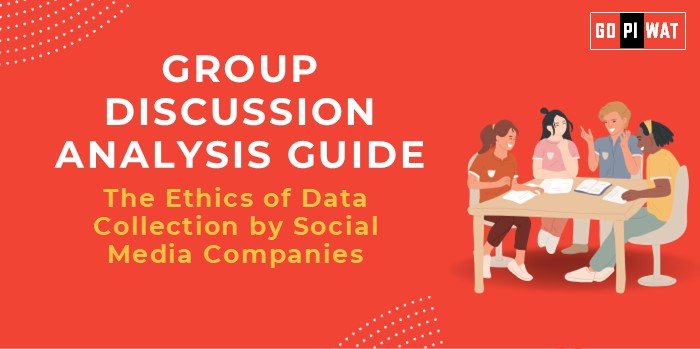📋 The Ethics of Data Collection by Social Media Companies
🌐 Introduction to the Ethics of Data Collection
Social media platforms like Facebook, Instagram, and TikTok have revolutionized global communication but have sparked intense debates regarding privacy violations and ethical data usage. These platforms collect vast amounts of data from billions of users worldwide for purposes such as personalized advertising, content moderation, and platform improvement. Ethical concerns arise due to breaches, misuse, and lack of transparency.
📊 Quick Facts and Key Statistics
- 🌍 Global Social Media Users: 4.9 billion in 2023, highlighting its vast reach.
- 💰 Ad Revenue: Meta (Facebook) earned $113 billion in 2022, primarily from targeted advertising.
- ⚠️ Cambridge Analytica Scandal: Misused data from 87 million users for political campaigns.
- ⚖️ GDPR Fines: €1.3 billion fine on Meta in 2023 for violating EU data privacy regulations.
👥 Stakeholders and Their Roles
- 💻 Social Media Companies: Primary data collectors, driving platform monetization through user data.
- ⚖️ Governments: Regulate practices to protect privacy rights and enforce ethical conduct.
- 👤 Users: Share personal data, often unaware of its implications.
- 📢 Advocacy Groups: Push for transparency and stricter regulations.
📚 Achievements and Challenges
Achievements:
- 🎯 Personalization: Enhanced user experience through customized content and ads.
- 💵 Monetization Models: Enabled free access to platforms via ad-supported models.
- 🌍 Societal Benefits: Assisted in public health campaigns and disaster response efforts.
Challenges:
- ⚠️ Privacy Violations: Frequent breaches and unauthorized access to sensitive information.
- 🎭 Biases and Manipulation: Algorithms influencing elections and polarizing opinions.
- 🌐 Global Comparisons:
- EU: GDPR enforces strict regulations on data collection.
- USA: Looser federal laws allow companies more latitude.
- China: Extensive government data monitoring with limited user privacy.
📜 Case Study: Cambridge Analytica
The Cambridge Analytica scandal marked a watershed moment in data privacy, involving the misuse of data from 87 million Facebook users for political campaigns. This event catalyzed the introduction of stricter global data protection laws.
🗨️ Structured Arguments for Discussion
- ✅ Supporting Stance: “Data-driven insights revolutionize industries and create better user experiences.”
- ❌ Opposing Stance: “Excessive data collection undermines privacy and fosters manipulation.”
- ⚖️ Balanced Perspective: “While data collection drives innovation, strict regulations are essential for ethical governance.”
🌟 Effective Discussion Approaches
- 💡 Opening Approaches:
- 📚 Start with a landmark case: “The Cambridge Analytica scandal highlights the ethical dilemma of user data misuse…”
- 📊 Use statistics: “With 4.9 billion users, social media holds unprecedented power over global communication…”
- 💬 Counter-Argument Handling:
- Use GDPR as a model for ethical practices.
- Highlight user consent as a mitigating factor.
📈 SWOT Analysis
- ✅ Strengths: Revenue generation, user convenience.
- ⚠️ Weaknesses: Vulnerability to breaches.
- 🌟 Opportunities: Ethical AI, enhanced transparency.
- ⚡ Threats: Regulatory penalties, user distrust.
🎓 Connecting with B-School Applications
- 🌍 Real-World Applications: Ethical data collection influences marketing, operations, and business strategy decisions.
- 💬 Sample Interview Questions:
- “How can businesses balance personalization with user privacy?”
- “What role does regulation play in fostering ethical AI?”
- 📘 Insights for B-School Students: Analyze ethical dilemmas in data practices to align strategies with legal frameworks.


